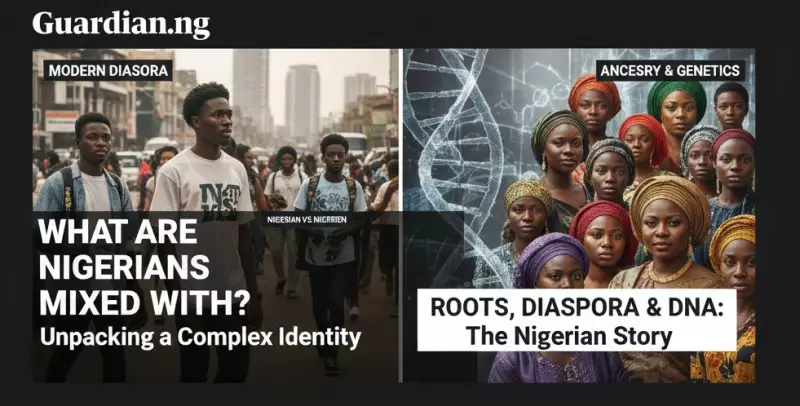
When we think of Nigerian identity, we often picture the country's three major ethnic groups: Yoruba, Igbo, and Hausa. However, groundbreaking genetic research reveals a far more complex and fascinating story woven into the DNA of modern Nigerians.
The Genetic Melting Pot of West Africa
Scientific studies have uncovered that Nigerians carry genetic markers from across Africa and beyond, telling a story of ancient migrations, trade routes, and cultural exchanges that span thousands of years. This genetic diversity challenges simplistic notions of ethnic purity and reveals Nigeria as a historical crossroads of human movement.
Ancient Connections Across the Continent
Genetic analysis shows significant connections between Nigerian populations and:
- North African lineages from Berber and Arab migrations
- East African genetic markers indicating ancient population movements
- Central African ancestry from rainforest dwellers and Bantu expansions
- West African regional mixtures from neighboring countries
The Trans-Saharan Trade Genetic Legacy
Centuries of trans-Saharan trade routes left an indelible mark on Nigerian genetics. Caravans carrying salt, gold, and other goods also carried genetic material that mixed with local populations, creating the diverse genetic landscape we see today.
European and Middle Eastern Influences
While predominantly African, some Nigerian populations show small but significant genetic contributions from:
- Portuguese traders who established early coastal contacts
- British colonial administrators and traders
- Middle Eastern merchants from Lebanon and Syria
- Other European contacts through trade and colonization
What DNA Testing Reveals About Nigerian Diversity
Modern genetic testing services are helping Nigerians discover surprising aspects of their ancestry. Many are finding:
- Unexpected connections to neighboring West African countries
- Traces of North African and Middle Eastern ancestry
- Genetic markers shared with African diaspora populations
- Ancient hunter-gatherer ancestry predating modern ethnic groups
The Science Behind the Diversity
Researchers use several methods to trace Nigerian genetic diversity:
Y-chromosome analysis tracks paternal lineages through thousands of years, revealing patterns of male migration and settlement across Nigeria and beyond.
Mitochondrial DNA studies follow maternal lines, showing how women moved between communities and regions, carrying genetic diversity with them.
Autosomal DNA testing examines the entire genetic makeup, providing the most complete picture of an individual's ancestral background.
Embracing the Mixed Heritage
This genetic complexity reflects Nigeria's long history as a center of trade, empire, and cultural exchange. Rather than diluting Nigerian identity, this diversity enriches it, showing how interconnected Nigerian populations have been with the wider world for millennia.
The genetic story of Nigeria is still being written, with new discoveries emerging regularly as more Nigerians participate in genetic research and testing. Each new sample adds another thread to the rich tapestry that makes up the Nigerian people.





